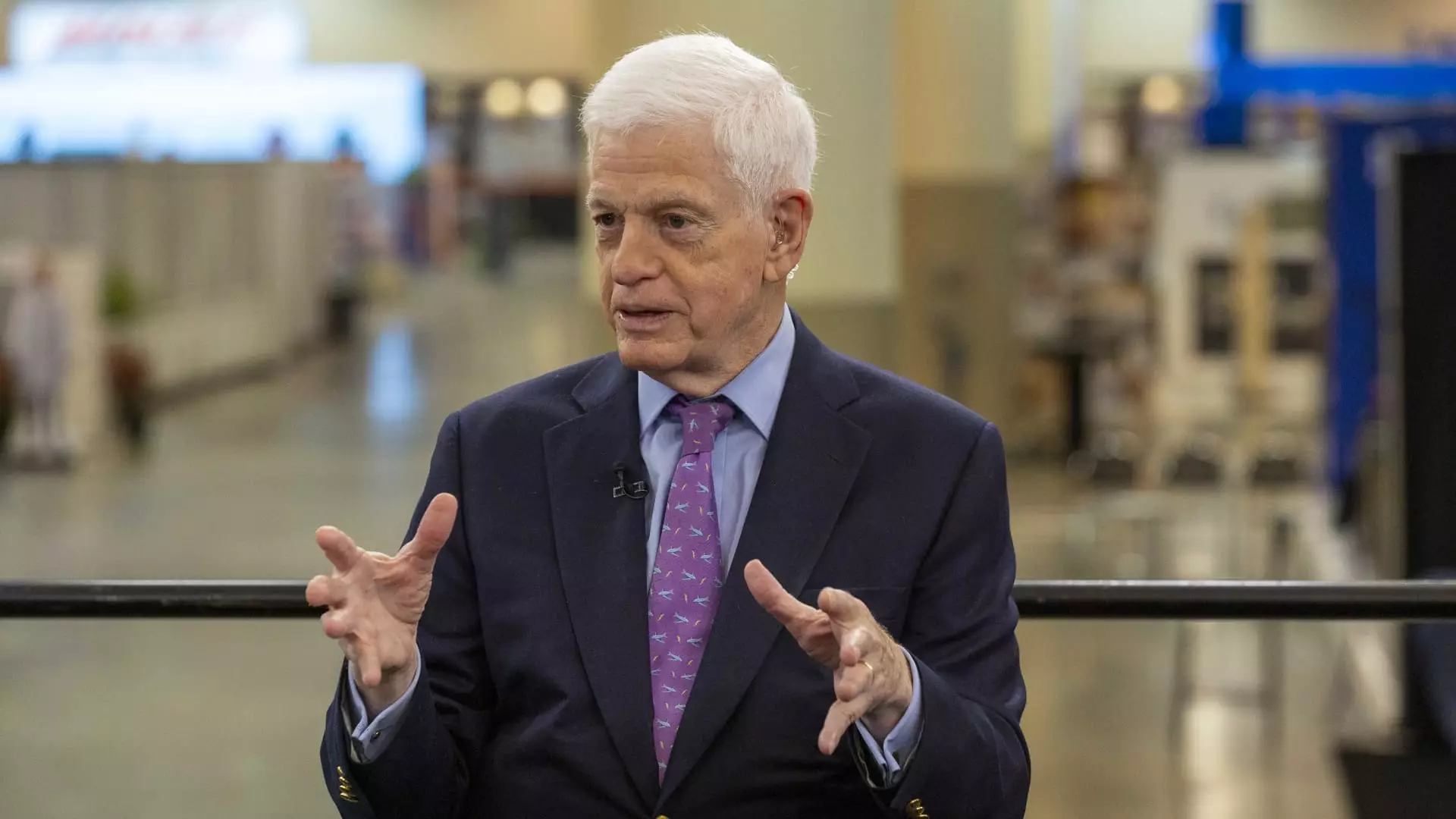In an era dominated by rapid e-commerce growth and tech-driven stock picks, investor Mario Gabelli recently made headlines by urging individuals to invest in something seemingly unconventional: the Atlanta Braves. This call to action is not merely about the love of baseball; it resonates deeply within the folds of contemporary investment philosophy. Gabelli suggested investing in a single share of the Braves as an alternative to traditional seasonal gifts, such as Easter presents. This perspective challenges prevailing norms, elevating sports franchises to a status that rivals conventional stocks.
But why should one single share in a baseball team capture the attention of investors? Gabelli believes in the franchise’s potential for growth, a notion that is becoming increasingly persuasive in a world where entertainment, sports, and culture intersect with finance—all underpinned by their audiences’ emotional investments.
Market Movements: Timing is Key
Gabelli’s remarks, which echoed on CNBC’s “Power Lunch,” provided a timely boost, lifting shares of the Braves on Wednesday. The idea of investing in sports teams might seem frivolous to some, but a closer inspection reveals an intriguing financial landscape. Investors are continually looking for tangible assets that can exploit fan loyalty and cultural significance, especially as the industry evolves and diversifies revenue streams.
One cannot overlook the ramifications of the broader economic climate and the public sentiment around sports. Franchise ownership has transformed into a lucrative business that can yield impressive returns. Gabelli’s call isn’t merely whimsical; it’s rooted in recognizing a substantial underlying trend. In a world that feels increasingly volatile, aligning with organizations that not only represent athletic achievement but also substantial community loyalty and branding potential has become a compelling option.
Beyond the Braves: Diversifying in Respected Companies
But Gabelli’s interest doesn’t end with just one team. He extols the virtues of several companies that embody sound business practices. Primarily, he spotlighted Crane Co., an aerospace equipment maker, praising CEO Max Mitchell’s leadership for successfully streamlining the company’s operations and demonstrating strong earnings projections. Gabelli’s scrutiny of Crane goes beyond surface-level metrics; it reveals his knack for identifying strong foundations before broader market acknowledgment.
The important takeaway here is this: Gabelli presents a case for investing in businesses that may not adhere to conventional market profiles but are still sitting on gold mines of potential. By supporting these enterprises, investors align themselves with companies poised for growth—instead of merely buying into household names.
Finding Potential in Unlikely Places
The Chicago-based GATX also commands Gabelli’s attention due to its unfaltering business model in railcar leasing. He recognizes their ability not only to diversify revenue streams by entering different geographical markets but also to maintain a focus on smart investments, including partnerships involving jet engines with Rolls-Royce. Gabelli shines a light on companies like GATX to advocate for perspectives beyond the commonplace financial wisdom of “More is Better.”
Many investors overlook small-cap stocks, but Gabelli’s assertion that smart, adaptive firms can outperform larger counterparts merits consideration. This approach champions a mindset of agility—it emphasizes the importance of being open to less popular choices that could lead to substantial rewards.
The Entertainment Edge: Assessing Sony’s Position
Additionally, Gabelli’s enthusiasm extends to Sony Group, the parent company of PlayStation, which he believes stands to benefit significantly from future video game releases and streaming service shifts. With the anticipated launch of the next Grand Theft Auto installment and potential price hikes from platforms like Spotify, he senses an environment ripe for reinvigorated sales. While it might seem unconventional for an investor to leverage entertainment trends, Gabelli underscores that successful investment hinges on merging cultural phenomena with economic strategy.
In a climate of uncertainty, Gabelli’s advocacy for investing not just in stocks but also in the evolving entertainment landscape elevates the conversation around what constitutes a valid investment.
As we navigate an increasingly complex financial world, Gabelli captures a pivotal lesson: invest in what speaks to culture, loyalty, and adaptability. These qualities not only offer potential financial returns but also symbolize engagement in an evolving society.

